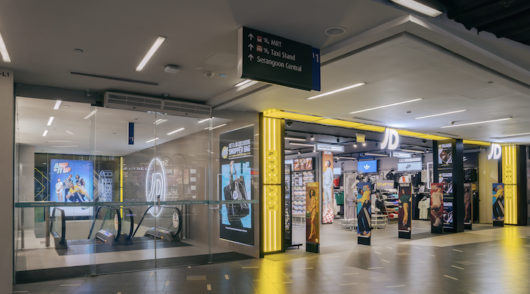Rising inflation and interest rate hikes indicate a challenging peak period for many retailers with discretionary spending down on previous years. This makes it more critical than ever that every order received is processed reliably.
Overselling results in cancelled orders and an undesirable customer experience. In this peak period, it will be critical for retailers to focus both on operational efficiency but also customer experience.
Here are four key ways retailers can secure sales this season:
Understand inventory
Retailers need to have an accurate understanding of inventory. If retailers are to thrive this holiday season, they must improve inventory data and its visibility. Having the right product in the right place at the right time, and being able to show your customer this availability in real time is crucial. This will help avoid overstocking and losing money spent to purchase excess inventory. Knowing when to order, how much to order and where to store stock will become even more important. Better inventory data will allow retailers much better insight into these questions.
However, knowing what stock you have and where it is, is a big challenge for retailers. Most rely on data coming from their ERP system, the inventory master, but these systems struggle to keep inventory continuously updated based on transactions throughout the day. Updates are made in batches which leads to lags and inaccuracies. These result in customers purchasing items no longer available (overselling) or customers not being able to purchase items that are available but not visible (underselling).
Fortunately, there is technology available that can provide better inventory data and visibility, processing hundreds of millions of inventory updates, at speed where previously this number was in the thousands. Fluent Big Inventory has been developed for this purpose and is the only product of its kind on the market today.
Keep your delivery promise
Retailers must provide as accurate a delivery promise as early as possible in the customer buying cycle. It’s better to underpromise than underdeliver and disappoint. By extending extra expected delivery times by a day or two, retailers can help reduce complaints or disappointment caused by shipping delays or delivery mistakes.
Prioritising short-SLA orders can also maximise efficiency. Customers who have paid extra for expedited delivery expect to be prioritised all the way through the process, so retailers should pick and pack these orders first. If the distribution centre is at risk of missing a deadline, pass over to a nearby store if possible.
Ultimately, communication remains a key factor in customer satisfaction when it comes to delivery. By increasing the expected delivery time and updating customers throughout, retailers can create a better delivery experience this holiday season – and take some of the pressure off.
Choose Composable Commerce
Composable commerce is about selecting and assembling best-of-breed solutions to satisfy a customer’s distinct needs. Instead of using a one-size-fits-all legacy approach, composable commerce leverages modern, flexible and customisable technologies.
This agility is a huge advantage in the modern marketplace where businesses need to be able to adapt to emerging trends fast. Making modifications to a traditional commerce platform can take weeks if not months and can incur a huge IT bill, especially if development responsibilities are outsourced. A headless commerce platform allows businesses to oversee change implementation in-house, and changes are far quicker to implement.
Components or services in the solution can be scaled independently, which is a factor in achieving greater overall resilience. Composable commerce solutions tend to exhibit better evolutionary characteristics as components and services can be added, replaced or updated as needed without requiring significant modifications to the backend architecture.
Use technology to take pressure off staff to let them focus on customer service
Today’s dedicated Distributed Order Management (DOM) systems offer user-friendly, mobile-enabled tools that guide store staff through the pick, pack, and ship process. Not only does this reduce the time it takes to train staff, but from the first order notification, through to printing shipping labels, it provides them with a good experience. More importantly still, is that those same tools let staff provide a great order management process to the customers.
Similarly, when online customers arrive to collect an order, in-store staff need only scan a barcode. This ensures waiting times are short, not only adding to customer satisfaction but also helping stores to fulfil their social distancing obligations to staff and customers alike. More efficient inventory management also means the DOM will allow retailers to adjust the flow of orders sent to each store, so no location is over-burdened and stock levels remain efficiently balanced around shops in a chain. If an order is unable to be fulfilled at any given store, it is automatically rerouted.
Of course, it is important to ensure customer service channels are appropriately scaled to handle an increased volume of customer queries over the holiday season.
With time running out ahead of this year’s Black Friday shopping bonanza, retailers that have taken the time to prepare will be best placed to take advantage of this all-important period in the retail calendar.
- Jamie Cairns is chief strategy officer at Fluent Commerce.







